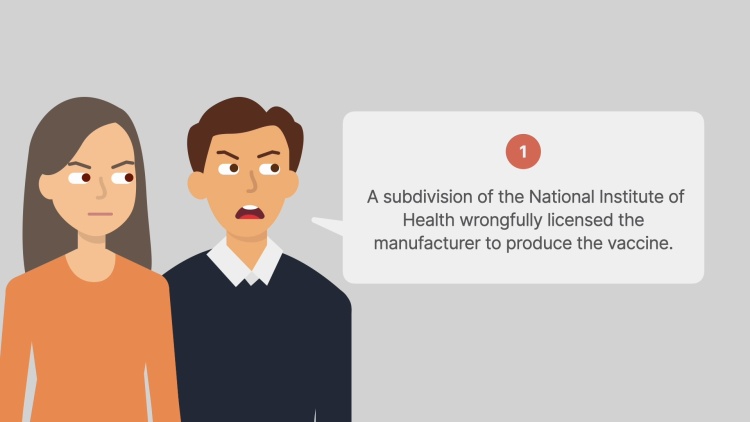Berkovitz v. United States
United States Supreme Court
486 U.S. 531 (1988)
- Written by Megan Petersen, JD
Facts
Kevan Berkovitz (plaintiff), a 2-month-old infant orally ingested an oral polio vaccine. A month later, he contracted a severe case of polio which left him paralyzed on one side of his body and unable to breathe on his own. The vaccine itself and the particular lot which contained Berkovitz’s dose had previously been licensed and released by the United States government (defendant) through its Division of Biologic Standards (DBS) and the Bureau of Biologics of the Food and Drug Administration (FDA). Berkovitz and his parents as guardians brought suit against the United States under the Federal Tort Claims Act (FTCA) in federal district court. The district court held that the licensing and releasing of the polio vaccine is not a “discretionary function” under the FTCA, and thus the United States is not immune from suit based on its performance of these functions. The district court held for Berkovitz, and the United States appealed. The court of appeals reversed, and the United States Supreme Court considered the case.
Rule of Law
Issue
Holding and Reasoning (Marshall, J.)
What to do next…
Here's why 907,000 law students have relied on our case briefs:
- Written by law professors and practitioners, not other law students. 47,100 briefs, keyed to 996 casebooks. Top-notch customer support.
- The right amount of information, includes the facts, issues, rule of law, holding and reasoning, and any concurrences and dissents.
- Access in your classes, works on your mobile and tablet. Massive library of related video lessons and high quality multiple-choice questions.
- Easy to use, uniform format for every case brief. Written in plain English, not in legalese. Our briefs summarize and simplify; they don’t just repeat the court’s language.





